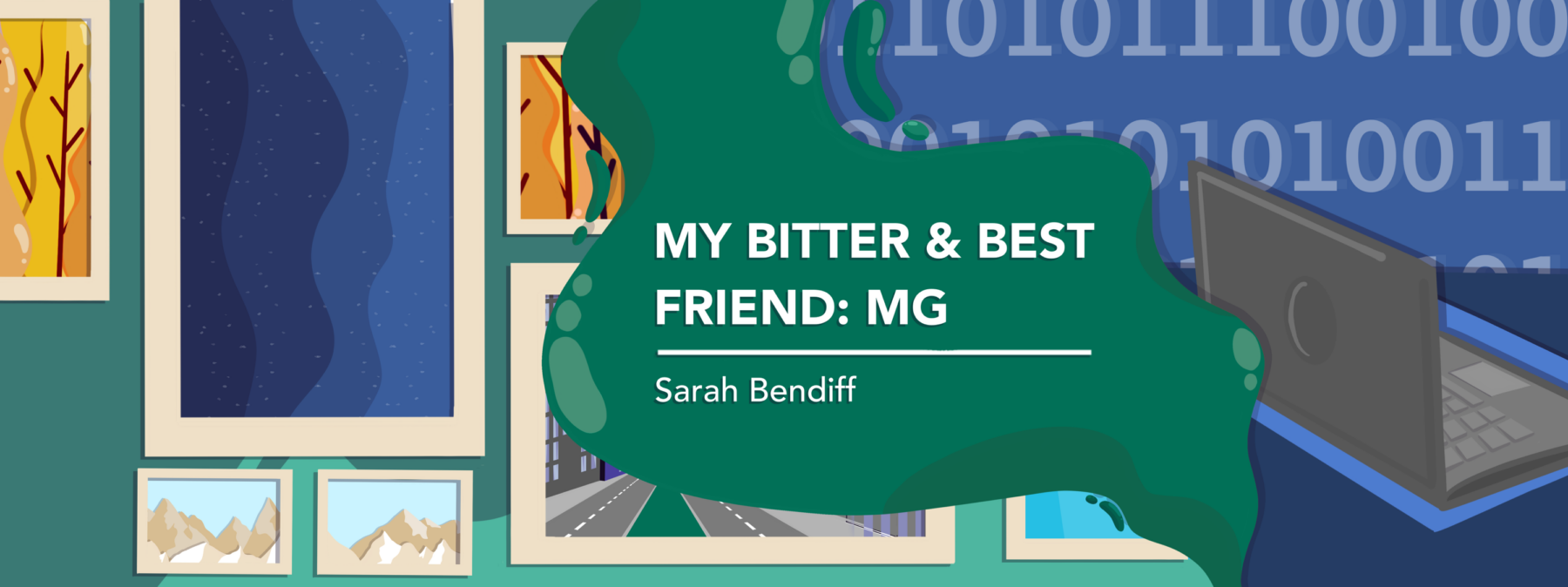Why I dread going to doctor appointments
I lean on strength and acceptance to get me through it
Written by |

Here we are again: I have new symptoms. And no, I am not excited about seeing more doctors.
After spending 10 years searching for a diagnosis before finally finding out I have myasthenia gravis, I now limit my medical appointments to only the most urgent and important ones. I no longer have the energy or patience to chase answers endlessly. Yet, the fear remains.
What exactly do I fear?
I fear the unknown. When I walk into a waiting room, I never know what kind of environment I’ll be stepping into. Will I be surrounded by people with similar conditions? Will I hear hopeful stories, or will I leave feeling worse than when I arrived?
I fear the doctor’s approach. Will they be open and communicative, or will they brush off my concerns? Will they take the time to explain their thoughts, or will I hear the dreaded “Are you a doctor? Why are you asking so many questions?” Sorry for wanting to understand what’s happening in my own body!
I fear the discomfort — the cold medical instruments, the awkwardness of undressing for an exam, the unfamiliar feeling of being analyzed and inspected.
I fear the waiting. The endless waiting. Waiting for blood test results. Waiting for scan interpretations. Waiting for a new exam — one that no one even warned me about.
I’ve been in situations where I had to wait for a test I’d never even heard of. If I don’t have time to Google the procedure, I panic. Not knowing what to expect makes my anxiety spiral.
I fear misdiagnosis. What if the doctor misses something important? What if they send me in the wrong direction? What if this becomes another long, frustrating journey to nowhere?
I fear the results. If they come back negative, I feel disappointed — still no answers, still more uncertainty. If they come back positive, I fear what’s next. Will this new condition be another lifelong battle? Will it be a “best friend” condition that I can manage? Or a “bitter friend” condition that takes over my life?
How do I cope with medical anxiety?
For me, it all comes down to preparation, people, and faith.
I mentally rehearse a doctor appointment before it happens. I run through every possible conversation, preparing myself for both friendly and dismissive doctors, and for good and bad news.
I write down all my important questions and try to phrase them in a way that doesn’t overwhelm the doctor.
I also research — not to diagnose myself, but to understand possible explanations. This helps me follow the doctor’s reasoning and ask the right questions.
I try to never go alone.
Even though I try to refuse to let my boyfriend come with me, I secretly love knowing that he’s always ready to support me. Sometimes I bring my parents. And if no one is available? I turn my doctor appointment into a social event, texting friends and asking if they want to “hang out” with me at the clinic.
Having someone there makes a huge difference. It helps to have company in the waiting room and to have someone to process the news with, whether it’s bad or good.
At the end of the day, I put my faith in God.
I believe that everything happens for a reason — to teach me a lesson, to make me stronger, or to guide me toward advocacy. Whatever condition comes my way, I choose to welcome it with strength and acceptance.
Embracing the journey
It’s natural to feel uneasy about medical appointments. No one enjoys them. They’re rarely tied to happy moments. But life is made up of both good and bad experiences, and I try to embrace each part of it.
I don’t like adding new symptoms to my list. I don’t like waiting for results. I don’t like feeling vulnerable in front of doctors. But I also know that fear doesn’t stop time from moving forward. The tests will still come. The results will still arrive. My body will still change, whether I want it to or not.
So I remind myself: Whatever happens, I’ll handle it — just like I always have.
Note: Myasthenia Gravis News is strictly a news and information website about the disease. It does not provide medical advice, diagnosis, or treatment. This content is not intended to be a substitute for professional medical advice, diagnosis, or treatment. Always seek the advice of your physician or other qualified health provider with any questions you may have regarding a medical condition. Never disregard professional medical advice or delay in seeking it because of something you have read on this website. The opinions expressed in this column are not those of Myasthenia Gravis News or its parent company, Bionews, and are intended to spark discussion about issues pertaining to myasthenia gravis.



Sharon Hawe
Sorry to hear that you had such a difficulty time getting a diagnosis and the resulting anxiety around medical appointments. I had a diagnosis in a month and have a great specialist but he is only available for an annual follow up and non-urgent questions. My anxiety arises when I require urgent care, like a prescription for a sinus or lung infection. Ideally my family doctor (who also has an auto-immune disease) would manage my care but she is too busy to see me right away, so I'm left with trying to convince walk-in or telemedicine practitioners who know barely anything about MG or auto-immune diseases to treat me. I'm taking immune suppressant medication so I get infections that won't resolve without antibiotics about 3 times per year. Often they don't resolve even with medication because I'm only given the dosage for normal immune systems, not immune suppressed, if I'm not dismissed as having a virus or told it will resolve on its own despite already having worsening symptoms over 3-6 weeks. Or often they tell me to wait 10+ hours to be seen in an Emergency Room because they don't know anything about MG. The anxiety is made worse by being sent for tests in crowded medical facilities with sick people. I wear a good mask but it's not failsafe, and hygiene has fallen by the wayside post-pandemic.
Marie DeGennaro
This article regarding how I feel when I see the doctor is well said. It’s what I feel also.
Donna Kobylakiewicz
I truly enjoyed reading your article. I also went five years back-and-forth to specialist knowing something was wrong but yet couldn’t pinpoint it being. I was in my mid 70s already. I got like well. You’re just buried your husband, your mother, your mother-in-law Covid, your age you know you gotta slow down you gotta stop stressing Which is all true, but it still doesn’t explain. The total fatigue could be eyes the weakness and then it comes and goes, and trying to explain it to my children seemed almost impossible.
Coming from a medical background to research because I have to know what I’m dealing with when I go to doctors and with all these new drugs, the doctor say we hope this will work. We are thinking this may help you but no real definite answers. I was also the type of person Who had the drop of a hat would go anywhere always the planner in the group in the family, love to cook, love to go out all the time and dancing, and I found my whole world was changing, although my body was changing a little, my heart and my head Was still not accepting this. Right now I’m receiving IVIG once a month at a great cost., I don’t see a big difference but yet I don’t think I’m getting any worse right now so I have to look on the bright side. I still make plans hoping I could attend different functions, but I have to accept it is what it is.
When I go to my doctor a sheet of paper with all the questions and tell him jokingly today we practice medicine not money management because dealing with insurance companies can be extremely stressful.
On the bright side, when you’re 15 and 20 year-old grandsons come over and say grandma were here to babysit you, you have to know how much you’re loved.. I’m a memory maker and I’ll continue as long as I can try to make wonderful memories for me and the people around me.
I wish you well on your journey.
Thomas Clark
I for one understand the diagnosis routine. My first optho visit was scary. the clipping of my eyelids was talked about. finally a doctor at the plant where I worked met me on the factory floor and mentioned Myasthenia. I was scheduled for a brain MRI for tumor. finally my GP sent me to OSU clinic to a neuro who was dynamite. To me if she said down was really up then I changed my reasoning. Sadly she moved to a different hospital after my thymectomy. since that procedure I have been symptom free. I understand now this does not work for everyone, however, it did for me, by her direction including the choice of thoracic surgeon. If you have a doc you can trust the formula to win is better. If you have a bad mechanic your car will not be fixed either.